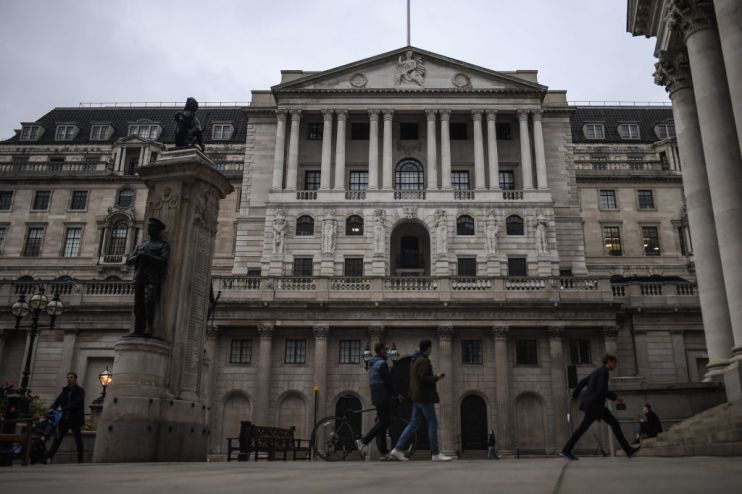Bank of England holds rates and says vaccines ‘reduce risks’ to economy

The Bank of England has left interest rates on hold at 0.1 per cent and its bond-buying programme at £895bn, saying the arrival of vaccines is likely to boost the economy next year but warning new restrictions will weigh on growth in the winter.
It comes after the Bank expanded its quantitative easing programme by £150bn in November. The scheme sees the Bank inject money into the economy to boost lending.
The BoE took a “wait and see” stance at a moment of high uncertainty for the UK economy. The rollout of the first vaccines has boosted confidence. But strict new Covid restrictions have been put in place and Brexit negotiations are ongoing.
To help companies weather this uncertainty, the Bank extended its term funding scheme by six months to 31 October next year.
The scheme allows banks to access funding at very close to 0.1 per cent interest. It is designed to encourage banks to lend to businesses and households throughout coronavirus.
The Bank’s monetary policy committee (MPC) said vaccines “are likely to support future UK and global activity”.
It said the Covid jabs will “reduce the downside risks to the economic outlook”. Inflation is set to rise “quite sharply” in the spring from 0.3 per cent last month, the MPC said.
However, the rate-setters said new restrictions would cause the economy to shrink in the fourth quarter by slightly more than the two per cent they predicted in November. And it said growth would also be slower in the first quarter of next year.
The government placed London under the strictest Tier 3 restrictions on Wednesday. It means pubs and restaurants have to close except for takeaway.
Bank: Tier 3 restrictions to hit short-term growth
As the Bank published its decision, health secretary Matt Hancock said a much wider area of the south would also be put in Tier 3. That includes Buckinghamshire and Surrey.
“The outlook for the economy remains unusually uncertain,” the MPC said. It added that “the nature of, and transition to, the new trading arrangements” between the UK and EU were also a major factor.
Governor Andrew Bailey has had a wild ride since taking over the Bank in March. Threadneedle Street has slashed interest rates to the record-low level of 0.1 per cent in a bid to keep banks lending.
It has also boosted its bond-buying package to £895bn. That means it can buy up £875bn of government bonds – i.e. debt – and £20bn of corporate bonds.
Quantitative easing sees the Bank create digital money and then buy up the bonds from banks and companies. This floods the economy with money, keeping interest rates low and encouraging borrowing.
The MPC voted unanimously to keep interest rates on hold and the bond-buying package steady.